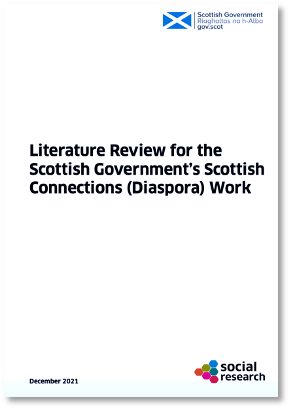Engaging with Diasporas

ICR Research was commissioned by the Scottish Government to contribute to the development of its policy on diaspora engagement.
Our research contributed to that by identifying, from a practical point of view, “what worked” in other countries’ arrangements that could contribute to a new strategy for developing “meaningful connections” with the Scottish diaspora, as part of a wider strategy of global engagement.
The countries included in the study were typical of countries globally in that they did not have fully developed policies and strategies for diaspora engagement and even where they did have strategies, they didn’t embed evaluation in their activities, so it was hard to assess “what worked”, even in a qualitative way, without further research.
Recognising this, we compared what countries said publicly, and came to an overview of:
- Policy drivers: what inspired countries to engage with their diasporas and their priority target groups.
- Means of engagement: how countries engaged, who engaged: the key actors in diaspora engagement in each country.
- Issues: facing countries engaged in diaspora engagement.
- Specific initiatives: which countries attached value to over time as a proxy measure for effectiveness.
We found that countries and regions in this study were increasingly interested in developing policies and strategies for diaspora engagement. This was driven by concerns about the economic impact of demographic change, and was particularly evident in countries with ageing populations, skills shortages, and good education systems that equip globally mobile younger workers to work overseas.
These findings contributed to the development of the Scottish Government’s Scottish Connections Framework, launched in April 2023, which “outlines a series of commitments and ambitions to strengthen and expand our relationships with, and between, Scotland’s international communities, and expand on existing work with our established networks.”
The importance of diaspora engagement to countries’ international soft power and cultural relations policies and practices was also a notable finding of our series of comparative studies (Case Study #1). Many countries, both friends and competitors of the UK, attach great importance to their diasporas. We believe that this is a matter which should be addressed in any future soft power strategy.